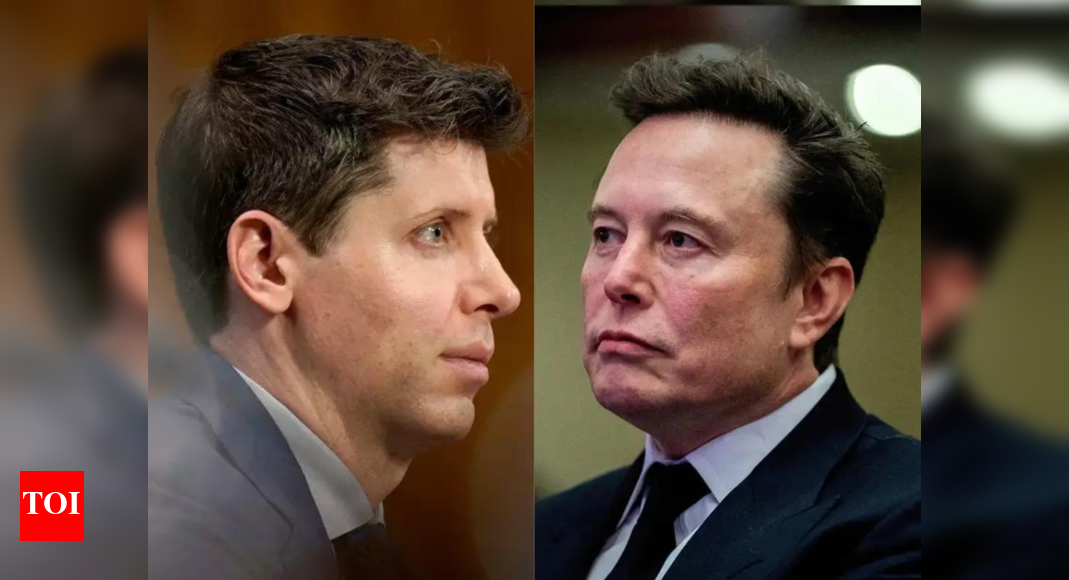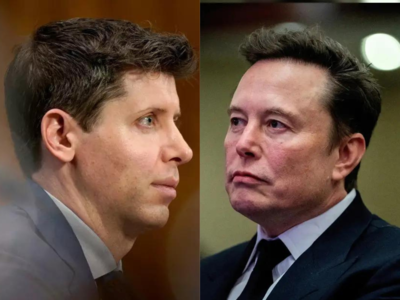
It’s a tale of two rebels, each standing at the frontier of artificial intelligence, each reimagining the future of technology, and yet, each shaped by radically different relationships with education. Elon Musk and Sam Altman have both emerged as era-defining figures. One is rewriting the script for interplanetary life and autonomous machines; the other is scripting the very language that machines now use to write back.But beneath the rockets, bots, and billion-dollar valuations lies a question both urgent and timeless: whose educational journey speaks more to this generation, and the next?
The premise: Learning beyond the lecture hall
In a world where traditional college degrees are losing their monopoly on success, Musk and Altman offer two distinct case studies on how far vision, curiosity, and risk-taking can carry you. Not merely as entrepreneurs, but as self-architected thinkers, their stories challenge the notion that diplomas dictate destiny.And yet, their respective narratives, one shaped by escape velocity, the other by algorithmic reinvention, reveal more than personal ambition. They reflect two competing philosophies of what education should be: An accelerant for bold invention, or a blueprint for structured disruption.
Elon Musk: The degree collector who defied the syllabus
Elon Musk’s educational trajectory was less a straight line and more a launch sequence, each stop a fuel station en route to ignition.Born in Pretoria, South Africa, Musk exhibited an early obsession with computers and engineering, coding his first video game by age 12. Education, for him, was not a finish line but a toolkit. He began at Queen’s University in Canada and transferred to the University of Pennsylvania, walking away with dual bachelor’s degrees in Physics and Economics—fields that would later serve as scaffolding for SpaceX and Tesla.But the most revealing educational move Musk made was not one he completed. Enrolling in a PhD program in Applied Physics at Stanford, Musk dropped out within 48 hours, a footnote that speaks louder than any dissertation. That moment wasn’t a rejection of knowledge, but of stagnation. He saw no value in waiting for permission to invent the future.Musk’s lesson? Learn everything, but don’t let anything keep you from building.
Sam Altman: The dropout who reprogrammed Silicon Valley
Then there’s Sam Altman—quietly intense, intellectually omnivorous, and dangerously good at spotting what comes next.Long before he co-founded OpenAI or built ChatGPT into a global sensation, Altman was a precocious kid in St. Louis, disassembling his Macintosh for fun. He attended Stanford University for Computer Science but left after two years to launch Loopt, a geolocation app that fizzled financially but blazed his trail into tech’s inner sanctum.His real education began after he dropped out. As President of Y Combinator, Altman became the oracle of early-stage innovation—nurturing Airbnb, Dropbox, and Stripe. He then pivoted into global AI leadership, co-founding OpenAI with a mission as ambitious as it is philosophical: ensure that artificial general intelligence benefits all of humanity.Unlike Musk, Altman doesn’t flaunt his dropout status. He doesn’t need to. The way he’s built OpenAI, Worldcoin, and his own brand of “tech diplomacy” proves that he wasn’t walking away from learning—he was walking towards a more useful version of it.Altman’s lesson? Education is everywhere, especially when you leave the classroom.
Two roads, one summit
While Musk charges ahead with Martian colonization and neural interfaces, Altman is charting the evolution of digital consciousness. Musk imagines machines that move matter; Altman imagines machines that move meaning.And yet, their views on education converge in one quiet truth: school may start the fire, but it’s your obsession that keeps it burning.Musk internalized the value of learning but refused to let school slow him down. Altman saw Stanford not as an institution to finish, but a springboard to jump from. Both treated education as modular—taking what served them and discarding the rest.
So whose journey is more inspiring?
The answer lies not in comparing GPAs or net worth, but in decoding the why behind their choices.If you believe that education should be structured, global, and multidisciplinary, Musk’s journey offers the blueprint. His path assures you that yes, institutional knowledge matters—but only if it fuels your launch, not holds you back.If you see education as something lived rather than lectured, then Altman is your north star. His trajectory shows how a college dropout can still become an intellectual juggernaut—provided he’s willing to build, break, and rewire systems from the ground up.In a way, both men are rebels—with a cause. And for students watching from the sidelines, the moral isn’t “drop out” or “go all in.” It’s this:Be relentlessly curious. Learn faster than the world changes. And most importantly—write your own curriculum.Because in the age of AI, Mars missions, and machine tutors, inspiration no longer belongs to degrees. It belongs to those brave enough to teach themselves what school never could.








